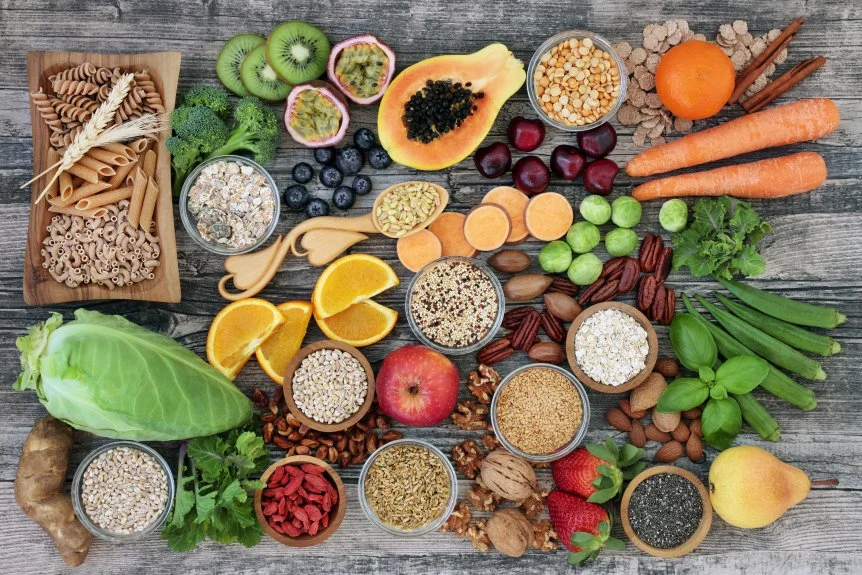Plant-Based Diet
A healthy, plant-based diet encourages high consumption of vegetables (cooked or raw), fruits, legumes, whole grains, nuts and soy. A plant-based diet is associated with vegetarian and vegan diets, which are defined below.
Fruitarian: consists of raw or dried fruits, nuts, seeds, honey and vegetable oil
Macrobiotic: excludes all animal products including meat, seafood, poultry, eggs and dairy products; uses only unprocessed, unrefined, natural and organic cereals, grains and condiments such as miso and seaweed
Vegan: excludes all animal products, including meat, seafood, poultry, eggs and dairy products as well as honey, gelatin and animal-derived food additives. Does not require consumption of whole foods or restrict fat or refined sugar.
Lacto-vegetarian: excludes eggs, meat, seafood and poultry and includes milk products.
Lacto-ovo vegetarian: excludes meat, seafood and poultry and includes eggs and dairy products.
A consistent, well-planned plant-based diet can provide adequate nutrition, sufficient energy and a variety of health benefits, including lower blood cholesterol levels, lower risk of heart disease, lower blood pressure levels, lower risk of hypertension and type 2 diabetes. Health concerns about plant-based diets are energy, protein intake, iron, zinc, vitamin B12, calcium, vitamin D and omega-3 fatty acids.
Most animal-based protein sources, including meat, dairy and eggs are more digestible than plant proteins such as soy, pea, quinoa, wheat and rice. Protein needs can be met on a plant-based diet by eating a variety of plant-based protein sources.
Many factors affect the absorption of iron from plant sources. Phytates found in beans, grains, and seeds, calcium and the polyphenolics in tea, coffee, and cocoa can decrease the absorption of iron. Vitamin C can increase iron absorption and reduce the inhibitory effects of phytates, which improves iron status.
Vitamin B12 is exclusively found in animal products. Lacto-ovo vegetarians can easily meet vitamin B12 recommendations, while other vegetarians and vegans have to consume foods fortified with vitamin B12, including soy and rice milks, cereals and meat analogues, or supplementation to meet needs.
Calcium bioavailability from vegetable sources are lower than from dairy sources. Consuming low-oxalate vegetables, including broccoli, Chinese cabbage, kale and bok choy are good alternative calcium sources and are more readily absorbed.
Vegan and vegetarian diets that do not consume fish and eggs tend to be lower in omega-3 fatty acids. Consuming ALA, a plant-based omega-3 fatty acid, such as flaxseed, walnuts, canola oil and soy, can help meet daily recommendations for omega-3 fatty acids.
For athletes, well-planned lacto-ovo vegetarian and vegan diets appear to be adequate in meeting nutrient requirements. A fruitarian or macrobiotic diet, even if well-planned, will not meet nutrient requirements. Vegetarians have lower stores of muscle creatine and carnitine than non-vegetarians, which may reduce their performance capacity for maximal and sustained high-intensity exercise. If you are considering a vegetarian or vegan diet, consult a registered dietitian to ensure nutritional needs are met. If you are looking for ways to eat healthier, eat a variety of foods from each food group, including plant-based and animal foods, to obtain key nutrients your body needs to function properly and be healthy.

